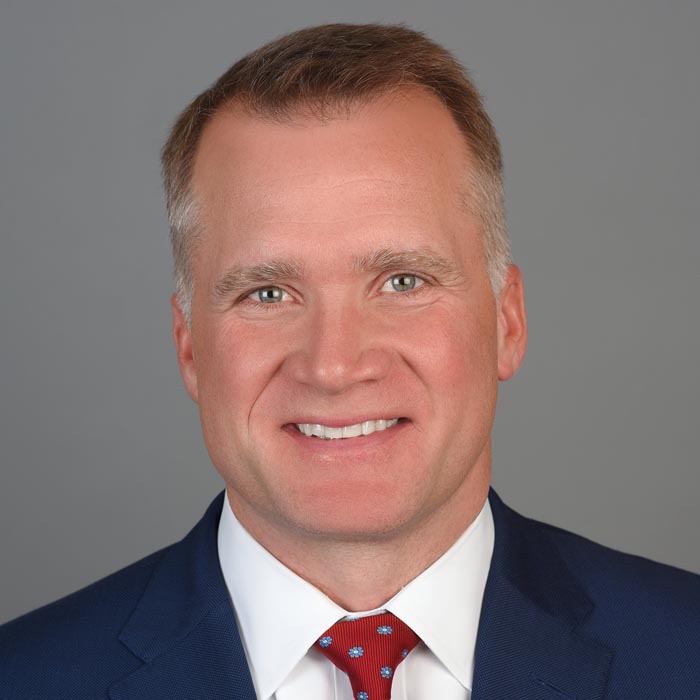PlanSponsor: Plan Sponsors Increasingly Add Focus on Post-Retirement Strategy
NEPC’s Emma O’Brien was quoted in a recent PlanSponsor article to discuss how plan sponsors can help ‘demystify’ the overall process for participants. View the article on PlanSponsor’s site here.
A new education push is underway among plan sponsors, who are looking to help employees create income in retirement when their last day of work precedes eligibility for Medicare and Social Security benefits.
. . .
Starting conversations about these topics early is key to overcoming inertia and to demystifying the process, according to Emma O’Brien, a senior consultant with NEPC who is based in the Boston area. A consultant to plan sponsors, she sees greater success in easing stress among employees when plan sponsors engage their participants long before they have a retirement date in mind. Varied direct messaging is essential too, as she recommends multiple attempts to reach employees, whether by email or by mail.
“It starts with making sure that the plan is simple and clear to participants so that when they do engage, they don’t get overwhelmed,” O’Brien says.
Finding ways to encourage employees to boost savings is a necessary complement to getting employees involved with their retirement plans, she says.
“The more participants contribute as active employees, the more options they have for spending down their benefits in retirement, both in terms of the dollar amounts they can draw, as well as the different distribution strategies,” O’Brien says.
. . .
She also sees benefits in providing modeling, such as when recordkeepers provide tools within their websites to help participants forecast their potential savings at retirement. Some include the ability to incorporate Social Security benefits as well, O’Brien says. Gaming out different options can quickly show pros and cons.
. . .
O’Brien too, sees how employees are aided by testing various scenarios. “They can model out what their future Social Security benefit is, and that’s the way to get a much more personalized approach,” she says.
She also encourages plan sponsors to reframe how they discuss Social Security with plan participants.
“We’re changing the way we think about Social Security, which is essentially an annuity,” O’Brien says. “Providing participants with information and tools to understand what their income replacement can be in retirement through their DC savings and Social Security benefits is really useful education.”
Read the full article on Plan Sponsor’s website here.
FundFire: China is Hot Topic Among Consultants as Political Pressure Grows
NEPC’s Jennifer Appel was quoted in a recent FundFire article noting that future policies from China and the U.S. will pose the most risk to private markets. View the article on FundFire’s site here.
Investment consultants that began the year bullish on China are reassessing the role it should play in institutional investors’ portfolios, as political tensions between the U.S. and China escalate.
Some consultants are recommending active management as the best way to invest in emerging markets and others are warning against private equity in China.
. . .
NEPC largely remains bullish on investments in China but said that private markets will be the riskiest investments currently.
Biden’s executive order targeted specific private market investments in China which are unlikely to affect any institutional investors commitments in China. However, future policies from China and the U.S. will likely attack the private market sector, making these commitments the riskiest, NEPC Senior Investment Director Jennifer Appel said in a paper written this month for the firm.
“China’s central government has restricted private investment in some sectors for policy reasons, for instance, online tutoring and video games; we expect policy risk to persist, and investors must be mindful of unexpected policy changes, which can impact sectors without warning,” she wrote.
Read the full article on FundFire’s website here.
FundFire: Hedge Funds Bolster Moves into Real Estate
NEPC’s Dulari Pancholi was quoted in a recent FundFire article highlighting an upward trend in hedge funds moving into the real estate space over the past decade.
Big hedge funds that have planted a flag in the real estate asset class appear to be thriving in their adopted markets with new vintages and fundraising efforts – an example of diversification that more of their peer managers might emulate as a way to tap potential growth.
. . .
Extending into real estate can be beneficial to hedge funds, said Dulari Pancholi, a partner leading the credit and multi-asset teams at NEPC.
“Over the past few years, hedge funds have gone through their own struggles,” she said. “If they’re able to build a differentiated business that is a longer-dated product, it locks in a revenue stream that is different and not reliant on just the hedge fund model [where] assets can ebb and flow. So, that brings a little stability to the firm.”
There has been an “upward trend” of hedge funds developing real estate arms over the last decade, especially targeting credit and distress-driven strategies, Pancholi added.
Read the full article on FundFire’s website here.
FIN News: Q2 2023: Private Infrastructure Offerings Gain Steam, Contribute To Hire Uptick
NEPC’s Matthew Ritter was recently featured in FIN News’ Q2 hiring analysis report. View the full article on FIN News’ site here.
Institutional commitments to private infrastructure funds increased in the second quarter given attractive characteristics—like providing an inflation hedge or cash yield—and product offerings that have gained steam in recent years, a trend that will likely continue into the second half of 2023 and beyond.
. . .
“While private market budgets have been somewhat muted in 2023, investment consultant NEPC expects to see continued growth and interest in infrastructure investing.
“Those mandates or those new commitments follow a trend in recent years of more and more investors adding infrastructure as a target allocation in their overall portfolio,” NEPC Partner Matthew Ritter said.
NEPC’s Quarterly Asset Class Review for the second quarter found that the Standard & Poor’s Global Infrastructure Index, which tracks 75 companies globally across the listed infrastructure space within a sector breakdown that includes utilities, industrials and energy, was “flat” for the quarter at -0.1%.
However, NEPC noted that it “continues to “favor private markets when it comes to implementing infrastructure in a portfolio.””
. . .
“NEPC’s Ritter, who heads the Boston-based firm’s Real Assets Investments Team, has also noticed growth in infrastructure strategies in recent years.
“That growth is continuing and perhaps more importantly, this space has evolved quite a bit and so infrastructure today offers investors a much wider array of strategies than was available even just a few years ago. There may be attractive investment opportunities regardless of what an investor’s return objectives or risk appetite might be,” he said.”
. . .
“NEPC finds there are attractive opportunities in the more thematic areas of infrastructure such as digital and communications.
“Some of the themes that we are focused on are segments of the infrastructure market that have very strong and resilient demand tailwinds, so more specifically that would be things like digital infrastructure and capitalizing on the continued growth of data consumption and transmission globally, as well as energy transition themes. So, not just renewable power generation but also all the ancillary assets, infrastructure services, that come along with that, whether it’s improving electricity transmission [or] grade upgrades,” Ritter said.”
. . .
“Ritter, who has been with NEPC for over 11 years covering real asset investments, indicated that at a high level, infrastructure can provide a lot of benefits to a portfolio like current income, diversification, but it is also reflective of what else is going on in client portfolios.
“More specifically for some clients, you’re seeing infrastructure as an alternative to more traditional oil and gas strategies that may have previously made up a real asset allocation. Across private markets, there may be some more uncertainty in places like real estate or some private equity strategies that [we] think infrastructure is seeing the benefits of,” he said.
“Infrastructure can provide diversification benefits just by the nature of having demand drivers and cash flow that is generally not correlated to things like GDP growth, and that results in generally low correlation to traditional stock and bond-types of investment opportunities,” Ritter continued.”
Pensions & Investments: More Data Means Improved DC Offerings
NEPC’s Emma O’Brien was quoted in a recent Pensions & Investments article which focuses on why stakeholders are cautious over generative AI. View the article on Pensions & Investments’ site here.
These days, the use cases for generative artificial intelligence are ever expanding— SEC Chairman Gary Gensler has called it the “most transformative technology of our time,” on par with the internet and the mass production of automobiles —but while retirement industry stakeholders say the tool will have major implications for defined contribution plans one day, record keepers and service providers are taking a cautious approach.
. . .
Although generative AI is an incredible tool, the application is risky for DC plans in its current state, said Emma O’Brien, Boston-based senior consultant for the NEPC LLC defined contribution team.
“The tool can become self-confident; there’s the chance of hallucinations, meaning the model can generate false outcomes or information, so while it’s powerful, the application needs to be regulated to protect participants,” she said. “We’re hearing from record keepers that are in the early stages of testing the application that they’re going to be really cautious for now.”
. . .
Willis Towers Watson’s Mr. Levinson and NEPC’s Ms. O’Brien each said their firms do not ask for participants’ personally identifiable information, but do seek data like age and the investments to which participants are allocating.
“Record keepers have the ability to provide very useful plan data which NEPC can leverage to provide customized advice for each plan based on the participant base,” Ms. O’Brien said.
NEPC analyzes plan data to estimate each participant’s expected risk and return based on their allocation as well as the expected risk and return for each option in the plan, she added. “Through that study we’ve been able to improve participant outcomes because they can help us quantify an overall risk profile that might be higher or lower than desired, and it can identify holes in the lineup or find unintended redundancies between investments,” Ms. O’Brien said.
Click here to continue reading the full Pensions & Investments article.
Pensions & Investments: U.S. College Endowments Add Inflation to Worry List
NEPC’s Kristin Reynolds was quoted in a recent Pensions & Investments article which focuses on why colleges might need to revisit risk and returns. View the article on Pensions & Investments’ site here.
A continuing “enrollment cliff” combined with rising interest rates and other worries are making risk a larger issue for college endowment officials, advisers say.
. . .
The use of outsourced CIO providers, a trend that saw rapid growth a decade ago, is still seeing growth, said Kristin Reynolds, Boston-based partner of endowment and foundations at investment consulting firm NEPC LLC, with $110 billion in endowment and foundation assets. The pressure on advisers to deliver performance, or be replaced, has also grown, she said.
While her firm is seeing a shift in what colleges spend money on, their endowments are still cash positive and not changing asset allocations. There is more talk about downside risk, but not much change in endowment’s risk profiles so far, Ms. Reynolds said.
A more immediate concern for endowment clients are private equity valuations, leading them to differentiate by vintage years and push for lower fees. “We have seen managers being more creative with their fees” to satisfy client demand, Ms. Reynolds said.
. . .
When it comes to responsible investing or environmental, social and governance considerations, “in the endowment space the news is still somewhat the same,” with investors asking for proactive solutions rather than bold moves such as divestment or exclusion, Ms. Reynolds said, and more interest in addressing social issues like diversity, equity and inclusion than tackling climate change, which can be trickier to measure and target.
Click here to continue reading the full Pensions & Investments article.
Pensions & Investments: Fewer 401(k) Plan Lineup Changes in 2022 as Fee Wars Quiet Down
NEPC’s Emma O’Brien was quoted in a recent Pensions & Investments article which focuses on 401(k) lineup changes. View the article on Pensions & Investments’ site here.
More than 60 U.S. corporate 401(k) plans in 2022 made changes in their investment options lineups, down from over 100 plans the previous year.
Slightly less than 8% of 11-K filings showed plans that made at least one investment option change during the year, with the majority affecting individual equity options, a Pensions & Investments analysis of recently released 11-K filings showed.
. . .
Emma O’Brien, Boston-based senior consultant at NEPC LLC, said that such a consolidation of core investment options has been driven by the trend of target-date fund lineups continuing to attract assets, meaning that fewer assets are being invested in core investment options menus.
“Sixty-three percent of all contributions are being invested in target-date funds, which is another indicator that target-date funds will continue to shrink that core menu,” Ms. O’Brien said in a phone interview.
Click here to continue reading the full Pensions & Investments article.
The Bond Buyer: Munis Weaker but Outperform UST Selloff After GDP Report
Phillip Nelson was quoted in a recent article by The Bond Buyer to discuss his prediction on inflation hikes through the remainder of 2023. View the article on The Bond Buyer’s site here.
Muni yields rose Thursday, following and outperforming a U.S. Treasury sell-off on the heels of strong-than-expected economic data. Equities ended down.
Thursday’s “economic data offers the latest evidence that the U.S. economy is weathering the fastest rate hikes in a generation without much damage to the major gear-works of the economy,” said Wells Fargo Securities senior economist Tim Quinlan and economist Shannon Seery.
. . .
Depending on inflation levels and price changes, Phil Nelson, head of asset allocation at investment consulting firm NEPC could see one or two more hikes by the end of this year.
“Nothing has changed in terms of how the Fed balances the set of risks, and they want to see data confirmation,” he said.
FIN News: NEPC Names New Foundation & Endowment Team Leader
Kristine Pelletier was recently announced as NEPC’s new Endowments & Foundations team leader. View the article on FIN News’ site here.
The firm recently named a partner as the new team leader for its foundation and endowment practice.
. . .
Pelletier is tasked with finding investment strategies that achieve clients’ multiple objectives and is responsible for strategic planning, client service and team development, according to the spokesperson.
She also leads research efforts for NEPC’s philanthropic clients and works to develop investment policies, conduct asset allocation studies, provide investment manager due diligence and research projects, according to her biography on the firm’s website.
Pelletier, who began in the role July 1, has served as a senior member of the Boston-based firm’s endowment and foundation practice and will continue in her role as partner, co-head of its impact investing committee and member of its DEI govern board, according to the spokesperson.
Pensions & Investments: Demand Growing, but Searching and Hiring Not Necessarily Easier
NEPC’s Steve Charlton was quoted in a recent Pensions & Investments article which focuses on the recent popularity of OCIOs and the challenges institutions are now facing logistically when transitioning from their current solution to an OCIO. View the article on Pensions & Investments’ site here.
The growing popularity of OCIOs is making it easier for asset owners to access the right providers, but sources are split over whether the search and hiring process is getting easier for institutions.
. . .
TIFF Advisory, a subsidiary of TIFF Investment Management, had $8.3 billion in outsourced AUM as of March 31, up 6.4% from a year prior.
But Steve Charlton, Boston-based head of client solutions and partner at NEPC LLC, countered that the hiring process is not getting easier.
“The growth of third-party evaluation firms as the stewards of OCIO searches has required the OCIO industry to invest in additional resources and capabilities to answer more in-depth questions coming from TPEs,” he said in an email. “TPEs generally take a deeper dive during the due-diligence process relative to asset owner-driven RFPs, so the hiring process is not getting easier in the OCIO space.”
NEPC reported $61.5 billion in outsourced AUM as of March 31, slightly below its $61.7 billion figure a year prior.
Click here to continue reading the full Pensions & Investments article.









